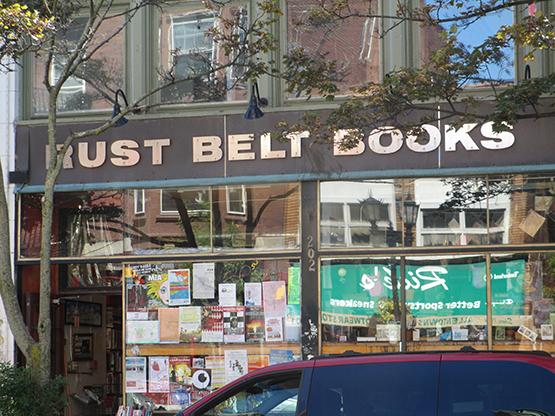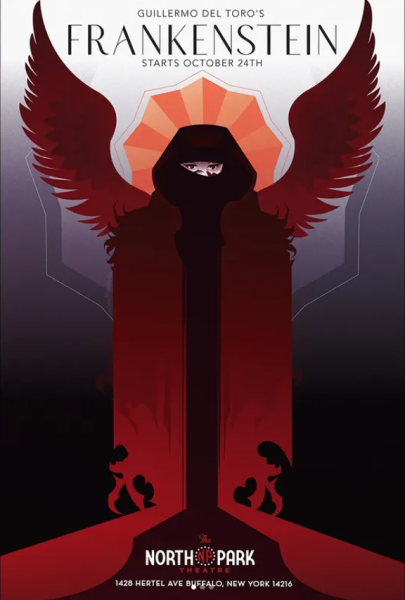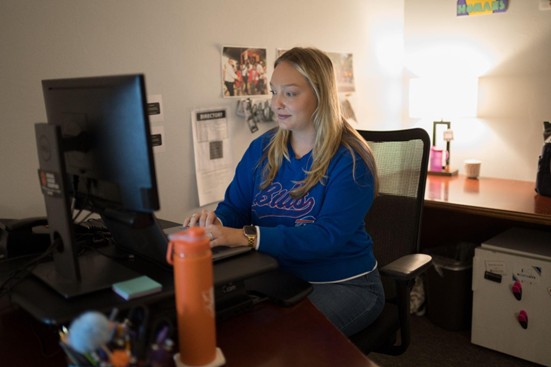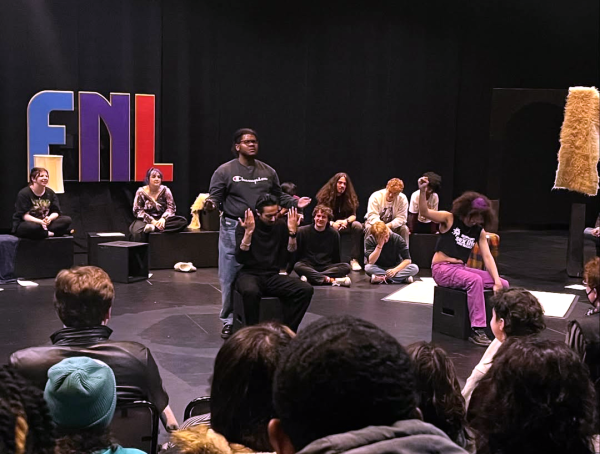E-books the future? Neighborhood bookstores weigh in

Rust Belt Books feels there will always be a place for print versions.
Electronic books, commonly known as e-books, are out in full force among us.
Everything from leisure reads to academic text is readily available via Internet connection.
As it is becoming increasingly easy for individuals to fulfill their literary needs by way of their computers, what does this mean for establishments that make their living from selling books in their tangible, page-turning form?
Talking Leaves Books and Rust Belt Books, two popular bookstores located on Elmwood Avenue and Allen Street, respectively, are not bothered by this generation of electronic readers.
“I am not at all threatened by the popularity of e-books,” said Lucy Kogler, manager of Talking Leaves. “Technology is never going to take the place of the physical book.”
Talking Leaves has embraced the new technology with their merchandising of the Kobo, an e-reader, to gratify the younger generation as well as a change preference in terms of functionality.
Talking Leaves Books has been in the community since the early 1970s, when it was founded by a group of graduate students from the University at Buffalo’s English department.
“[They] wanted a place for their professors to order their needed materials that were not in a campus bookstore,” Kogler said.
Campus bookstores are notorious for charging outrageously high prices for books that most students will probably only use for a semester. Using bookstores off campus allows for books to be available to students at a more affordable and student friendly price.
Kogler said that at some point they would begin selling e-books, “just because we want to give our customers what they want.”
Talking Leaves shows no sign of fear in this technology enriched age and has readily adapted to please its customers. This age of technology is not seen as a threat — there’s simply more than one medium now where literature is available.
Rust Belt Books has a slightly different take on the presence of e-books. They don’t plan on selling them or e-readers at all.
“It’s important to know that things in digital are not real. They don’t exist,” said Kristy Meal, spokeswoman for Rust Belt Books.
In the digital age, she points out, books we view online may not be the actual items, and there is something lost from not having the physical version. Rust Belt, therefore, believes in maintaining the traditional form of literature and will not adapt to the digital age.
It is in keeping with the Rust Belt tradition. The bookstore was founded in the late 90s by a friend of Meal, who, as she put it, was “a poor student who would go into bookstores and cry over the high prices of books.”
Rust Belt Books holds on to the idea that books should not cost an arm and a leg.
They want their diverse group of customers to have a place where they can feel free to sit, purchase used books at an affordable price and interact with other devoted readers in the neighborhood.
“We’ve made it this far without being reliant on the Internet to do our business,” Meal said. “A lot of how we do our business has to do with relationships with people here in the real time.”
Although e-books are making their presence known, and in some cases to the detriment of booksellers, Buffalo mainstays like Talking Leaves Books and Rust Belt Books have no fear of not being here for the next generation.
Adora Mack can be reached by email at [email protected].








